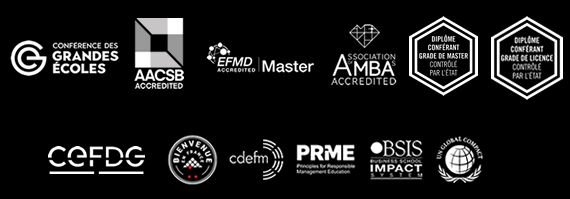Economic sanctions have become prevalent in geopolitical strategy, influencing targeted nations’ economic, social, and political landscapes. These sanctions affect critical areas such as human capital and talent management.
In this study, Marina Latukha, a Professor researcher at EMLV, examines how the sanctions influence macro talent management. To do so, she reviews the macro talent management (MTM) framework alongside the literature on sanctions. Using the case of Russia, she collected data from 419 media publications discussing the effects of sanctions and analyzed them using critical discourse analysis. Her findings highlight the predominantly negative nature of the sanctions’ impact on MTM ecosystems, theoretically yielding closer links between the sanctions and the MTM framework and human capital.
The Macro Talent Management Framework
Macro Talent Management (MTM) is the strategic management of human capital at a national or regional level. This approach considers various macro-level factors, including education, immigration, public policy, and demographics, to understand a country’s talent landscape comprehensively.
The MTM language explores how these macro factors influence global talent management processes, connecting firm-level and country-level activities.
Impact of Economic Sanctions on Talent Management
Economic sanctions disrupt normal economic activities and create barriers to the free movement of talent, resources, and information. They can lead to a rain drain, diminish the quality of education and training, and limit a country’s ability to attract and retain skilled professionals.
These challenges necessitate reevaluating MTM strategies, focusing on internal development and adaptation to mitigate the adverse effects of sanctions.
Case Study: Russia
Professor Latukha (2024) examined the impact of sanctions on Russia’s talent management ecosystem. The research utilized discourse analysis of 419 media publications between February 2022 and June 2023, which discussed the effects of sanctions on human capital mobility.
The findings highlighted the predominantly negative impact of sanctions on Russia’s MTM ecosystem, revealing a notable outflow of talent and weakened labor market conditions.
Organizational Responses to Sanctions
In response to these challenges, organizations within sanctioned countries are encouraged to adopt human capital diversification strategies.
These strategies involve creating new internal relationships and developing a more closed MTM ecosystem. This approach underscores the critical importance of retention over attraction, prompting a reconsideration of internal policies at both national and corporate levels to support human capital through targeted retention programs.
Strategic Focus on Internal Strengthening and Retention
A strategic focus on internal strengthening and retention initiatives emerges as a vital response to the challenges posed by sanctions.
This highlights organizations’ adaptability and resilience in mitigating the complexities of international sanctions. Organizations can minimize the adverse effects of sanctions by prioritizing developing and retaining existing talent and maintaining their competitive edge.
Economic sanctions significantly influence human capital and management processes in targeted countries. The case of Russia illustrates how sanctions can lead to talent outflows and weakened labor market conditions, necessitating a strict focus on internal development and retention. Organizations must adapt to these challenges by reevaluating their MTM strategies and implementing policies that support the development and retention of their human capital.





















